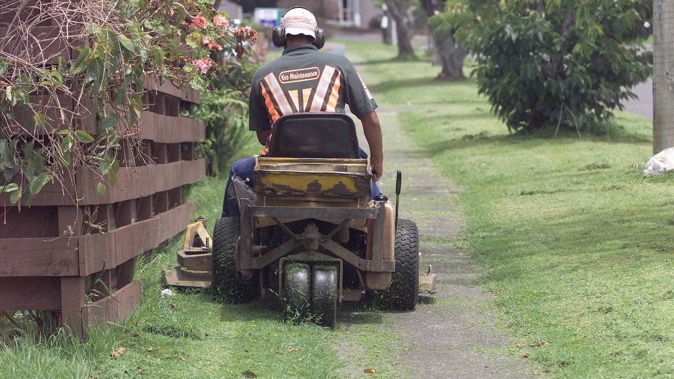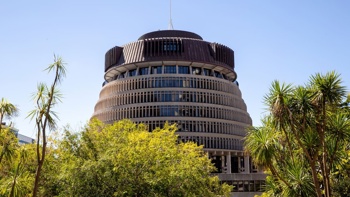
Rotorua Lakes Council has been warned it needs to cut back on core services in a bid to claw back a forecast deficit of $5.6 million.
And $680,000 of that shortfall is non-recoverable money already spent on the city’s emergency housing costs.
In a council meeting on Wednesday, Rotorua’s mayor and councillors were told the organisation’s budget was earlier expected to be in a deficit of $5.6m by the end of this financial year on June 30. However, cost savings of $2.7m to whittle the original shortfall to just under $2.9m had been identified. That did not include the yet-to-be-finalised costs of the Cyclone Gabrielle clean-up, which were already reaching $800,000.
Rotorua Lakes Council deputy chief executive of organisational enablement, Thomas Collé, said staff would continue to look for savings and minimise spending as much as possible, but it was “unlikely” the council would not be in deficit by the end of the financial year, despite cost-saving efforts.
/cloudfront-ap-southeast-2.images.arcpublishing.com/nzme/MZBVDIN64ZECLFF2ICWMVPOZ4M.jpg)
Summary of operating pressures
“What we can do is look at reducing our level of service to try to pull that back,” he said.
“Resources are being deployed to repair things that are damaged rather than doing planned renewal work.”
Collé listed emergency housing, Plan Change 9, inflation and weather events as four key pressures on the council’s operating budget.
/cloudfront-ap-southeast-2.images.arcpublishing.com/nzme/WE5KJXBOVOBUE3ZPUNCUM7QCXM.jpg)
Councillor Rawiri Waru said these were "challenging times".
Costs associated with the monitoring of emergency housing motels, plus hearings and deliberations on the conditions these motels were operating under, were not known at the time the 2022/23 Annual Plan was adopted. The council has since invoiced the Ministry of Housing and Urban Development for a $420,000 share of the costs associated with the November and December hearings.
Residual costs of $680,000 remained with the council. These were non-recoverable costs to the council associated with the consenting process and regulatory work undertaken with regard to motels providing emergency housing.
The council’s operating costs were already $2.78m higher than they should be due to the emergency housing costs, extra spending on roading contractors after flooding events and extra spending on security contracts.
Collé said the council was “already under pressure” and Cyclone Gabrielle “compounded the challenges we face”.
Clean-up costs related to the cyclone were expected to be more than $500,000 for roading, about $150,000 on trees and $150,000 on fixing jetties and walkways, the council heard.
If the council could not create the necessary savings before the end of the financial year, it would be forced to borrow money to fund its operating expenditure.
Councillor Don Paterson said there was “risk on the horizon” and cited a recent report which stated 40 per cent of Bay of Plenty household income was going toward mortgages.
“That’s only going to get worse ... is there any risk to our rates take when these pressures come on, that people just stop paying because they can’t afford it?”
Collé referred to a potential reduction in resource consent applications due to people choosing to no longer build as they may have planned.
Cutting back on services would help offer immediate savings, but it was up to the council to decide exactly what would be cut at its meeting next month once staff devised a shortlist of services, he said.
“We are looking to save as much as possible, but at this stage, I’m not sure what we would find. It would be a notable change to our community, but if that’s something you wish us to do, we would stride into that,” Collé said.
Councillor Conan O’Brien asked whether elected members would have any input into which services made the list, or whether they would be presented with the list to agree or disagree to.
Rotorua Mayor Tania Tapsell responded, saying she believed it would be a “yes or no” decision.
Councillor Rawiri Waru said these were “challenging times”.
/cloudfront-ap-southeast-2.images.arcpublishing.com/nzme/D53FCA2G2FDXPNQTFPPHY5TIXA.jpg)
Councillor Conan O'Brien questioned what say councillors would have on what services get cut. Photo / Andrew Warner
“Dropping our levels of service, it’s a hard one. We want to provide the best for our community, but at the same time, we need to be able to afford it.”
Waru said painting the picture “of the real pressures that we are under” could result in greater community understanding of what the council was facing when it came to consultation for the Annual Plan later in the year.
Councillor Don Paterson agreed with Waru, saying there was a perception in the community that existing facilities and assets were already “not being maintained properly”.
“We need to let people know that, yes, we want to have our community facilities properly cared for, we want our community to look beautiful, but we can’t do it. It’s not because we don’t want to, it’s because we can’t physically do it.”
Councillor O’Brien said it was “a very sad day, that we’ve come to this”.
“These are going to be very difficult times.”
Tapsell said: “Unfortunately, things like mowing just won’t be able to be done. That’s just one of many examples.”
Rotorua Mayor Tania Tapsell warns that things such as mowing may not be able to be done in the months to come. Photo / Andrew Warner
“I do appreciate the concerns and frustrations for councillors ... we are in a difficult situation where we are having to deal with an overspend. Remember, we are at the very end of the previous financial year ... that the previous council had set. We are only four months into our council, with only three months to the end of the financial year. It’s a good time for us to explore options.”
Rotorua Deputy Mayor Sandra Kai Fong said the council needed to do everything it could to bring the budget back in line to prevent the need to borrow money, which could have longer negative outcomes.
The council voted for staff to provide cost-saving options through the reduction of its community services, to the next full council meeting on March 29.
Take your Radio, Podcasts and Music with you

/cloudfront-ap-southeast-2.images.arcpublishing.com/nzme/7BORS2D34ZBCDJZI46GLPQPCBM.JPG)








